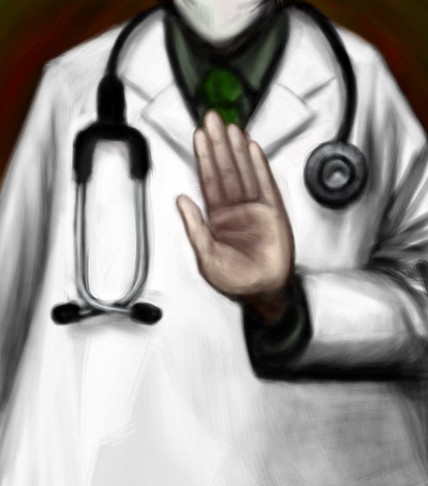It might sound funny that our gut could be leaking, but it’s more serious (and more common) than we might think.
I’m talking about leaky gut, the number one most under-diagnosed condition I see with my clients, and it’s possible you have it too.
As Hippocrates once said, “All disease begins in the gut.”
Our gut houses the majority of our immune system. It’s where we make our sleep hormone, melatonin. It’s where we absorb vitamins and nutrients from food to be used to support all bodily functions. And it’s where neurotransmitters like serotonin (the happy hormone) and dopamine (the wellbeing hormone) are produced.
So, can you imagine how much disarray can be caused when the gut isn’t performing all of its duties, right?
It would be like removing the engine from a car and still expecting it to be able to run.
Some traditional Western medical doctors know what leaky gut is, but they don’t know how to go about testing for it or treating it—not because they aren’t educated, but because they don’t have the time to really sit down and discuss all the lifestyle factors contributing to leaky gut.
So, what is leaky gut?
We’re starting to hear more about it with some of the recent media chatter around “microbiome,” but most of us don’t think it pertains to us. I’ll be honest, when I first heard about leaky gut I didn’t think it could be affecting me either. Then I tested myself and found out it was actually one of the main issues contributing to most of my health concerns.
Not only was my gut leaky, but I also had an overgrowth of a nasty bacteria called H. Pylori, a parasite called Blastocystis Hominis, and Candida. These gut invaders were a result of my leaky gut and they were contributing to it also!
Once I started healing my gut and eradicating these invaders my health improved drastically. My weight was more manageable, I had endless energy and my mood took a turn for the positive.
Do you experience…
Low energy or fatigue?
Anxiety or depression?
Joint aches and pains?
Insomnia or disrupted sleep?
Acne, skin rashes or breakouts?
Brain fog or difficulty concentrating?
Stomachaches, pains, bloating?
Struggle with weight loss or weight gain?
Allergies, get sick frequently or more than twice a year?
These are some of the most common signs of leaky gut that I see with my clients that we all experience, but are frequently overlooked. Leaky gut does not always result in digestive discomfort. It’s estimated that 30 percent of people with leaky gut don’t even report digestive issues. In fact, a large majority of my own clients with leaky gut actually don’t report any digestive issues, they are more concerned with things such as weight gain, low energy, allergies, anxiety and joint pain.
Leaky gut doesn’t just happen overnight, it’s something that has been in the works for a long time. Some of the biggest contributing factors include:
Eating processed or inflammatory foods (gluten, dairy, sugar, soy, alcohol are top of the list!)
Gut invaders—parasites, bacteria, yeast overgrowth
Exposure to environmental toxins/chemicals
Use of over-the-counter and/or prescription medications
I’m sure we could all check the box for just about every one of those things at some point in our lives. And just think, over the last 5, 10, 15 or more years, how often have we encountered those things? This is the perfect storm that paves the way for leaky gut.
Leaky gut means that the intestinal lining of your G.I. tract has been damaged—it literally has holes in it that allows toxins into the bloodstream, resulting in all kinds of metabolic chaos internally.
So how is leaky gut identified and fixed, you might ask?
Don’t worry, we’re not doomed if we have leaky gut. It is possible to come back from it and live a healthy life. When we clean up our diets, check for and get rid of gut invaders, and implement healing supplements, we can start feeling better in as little as a week! Healing the gut is a process, but it is possible.
Leaky gut can be identified by running a simple urine test, such as Genova Diagnostics IP Test, to show if large molecules are getting through the intestinal wall and if small ones are not. This indicates if leaky gut is present, or in scientific terms if the gut is “more permeable,” and if nutrients are not being well absorbed.
You could also run what’s called a PCR stool sample test showing the degree of inflammation, dysbiosis and infections (aka gut invaders) that are present causing damage to the intestinal lining.
Then with a personalized diet, adequate sleep, stress management and therapeutic supplements, it’s possible to restore strength and heal our guts.
When I work with clients to heal their gut, we focus on creating a personalized diet and healthy lifestyle plan that meets their specific needs. In most cases they stop needing any kind of medication within a matter of weeks or even days! Their energy comes back, skin blemishes go away, the weight starts coming off and they start feeling like themselves again. Our guts are ready to heal themselves, if we give them a chance.
Like my mentor Reed Davis (founder of Functional Diagnostic Nutrition) says, what it boils down to is that “headaches are not a result of Aspirin deficiency, sleep issues are not because of an Ambien shortage, and allergies not from a lack of Zyrtec.”
In fact, over-the-counter and prescription medications are some of the biggest contributing factors to leaky gut. When we find ourselves relying on these medications to keep our symptoms at bay, then it might be time for us to look more closely at our gut to see if we can make a connection with what is contributing to our ailments.
So if you find yourself struggling with health challenges that you can’t quite put your finger on- your gut is worth taking a good look at. We have to start asking the question “why?” so we can get to the root of the problem and fix it once and for all!
Sources:
(1) World Journal of Gastroenterology
(2) Dr. Axe
(3) San Jose Functional Medicine
(4) SCDLifestyle
Author: Jenn Malecha
Image: Truthout.org/Flickr
Editor: Emily Bartran







Read 2 comments and reply